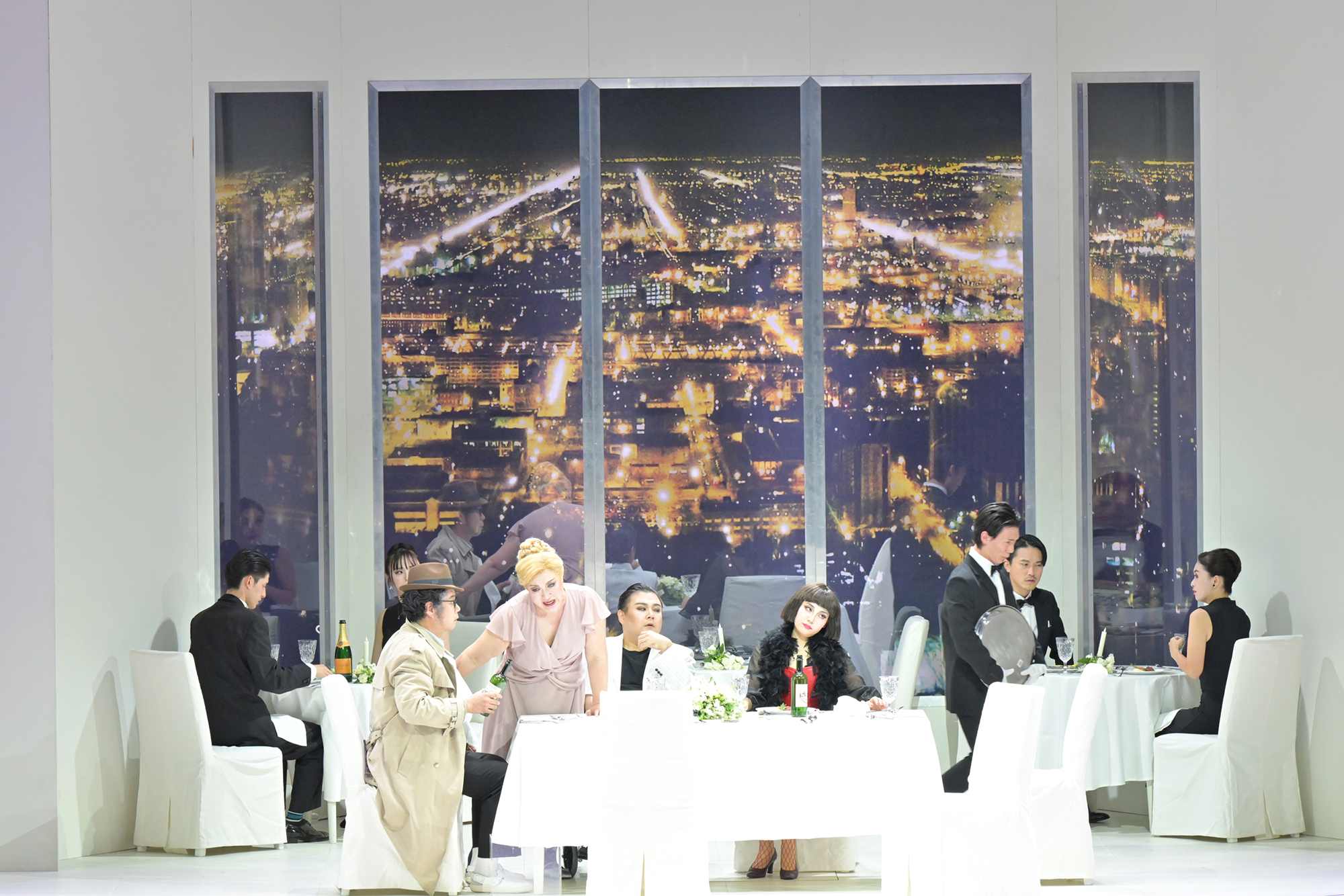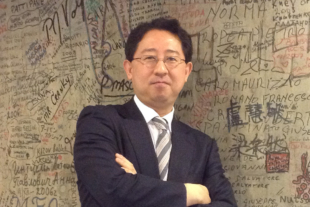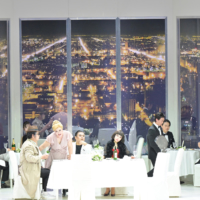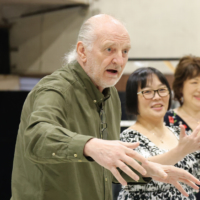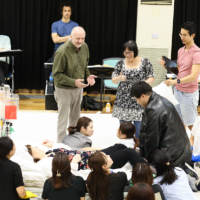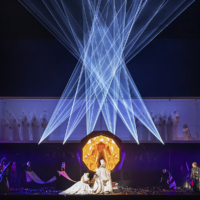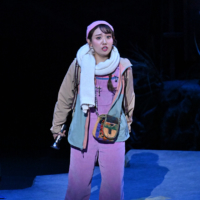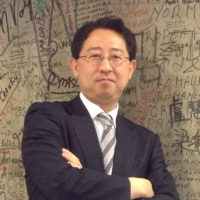Since classical music arrived in Japan in the 19th century, Tokyo has evolved into one of the world’s premier music capitals. Today, the city is home to more than 10 professional orchestras and boasts first-rate venues such as the Tokyo Bunka Kaikan and the New National Theatre, Tokyo.
The NHK Symphony Orchestra, Tokyo, Japan’s leading orchestra, made history in 2025 by becoming the first from Asia to be invited to perform at the prestigious Mahler Festival in Amsterdam.
Opera, in particular, has developed remarkably through numerous coproductions with European theaters. The Tokyo Nikikai Opera Foundation, one of Japan’s leading opera companies, actively engages in international collaborations, frequently partnering with esteemed European companies and artists on productions that blend Asian and Western artistic sensibilities. Through these global partnerships and a commitment to nurturing singers and staging excellent performances, Tokyo Nikikai has established itself as a central player in Tokyo’s classical music scene.
International coproductions key
International opera coproductions have become a global 21st century trend.
“In the past, each country adhered to the idea that ‘only we can create the finest works,’” explained Tsuyoshi Yamaguchi, executive director of the Tokyo Nikikai Opera Foundation. “However, due to economic circumstances, theaters worldwide now focus on cross-border collaborations as a means of maintaining high-quality productions while sharing costs among the countries involved.”
A fundamental principle is to stage performances in multiple countries, ensuring a wide variety of audiences with the ultimate aim of increasing opera attendance. However, the significance of international coproductions goes beyond cost efficiency and audience expansion.
“When artists from different countries collaborate on a performance, this adds new elements of diversity and creativity. As the production travels to different locations and brings in new performers, the work itself evolves and becomes more profound than any single production could achieve,” Yamaguchi said.
Tokyo Opera Days
A prime example of successful international coproduction is Tokyo Opera Days, an annual autumn festival held since 2023 as part of the Asian Opera Hub City Initiative.
Launched by the Tokyo Nikikai Opera Foundation, this initiative aims to position Tokyo as the hub for opera in Asia. The festival showcases a variety of experiences for Japanese and foreign audiences, including costume exhibitions, concerts featuring up-and-coming vocalists and opportunities to experience singing in a grand hall like an opera performer.
“Tokyo is home to world-class orchestras and singers who possess outstanding technical skills and a strong sense of responsibility. Looking across Asia, Tokyo is the only place where all the elements necessary for opera are available at the highest level,” Yamaguchi said. Tokyo Opera Days was launched as a three-year initiative under the basic theme of “bringing the highest standard of opera to Tokyo.”
The first year featured the import of Giuseppe Verdi’s “Don Carlo” from the Stuttgart State Opera, which involved re-creating it in Japan under the direction of Lotte de Beer.
Last year, world-renowned director Peter Konwitschny was invited to create a production of “Die Frau ohne Schatten” (“The Woman without a Shadow”) in Japan as a collaboration between the Tokyo Nikikai Opera and Theater Bonn.
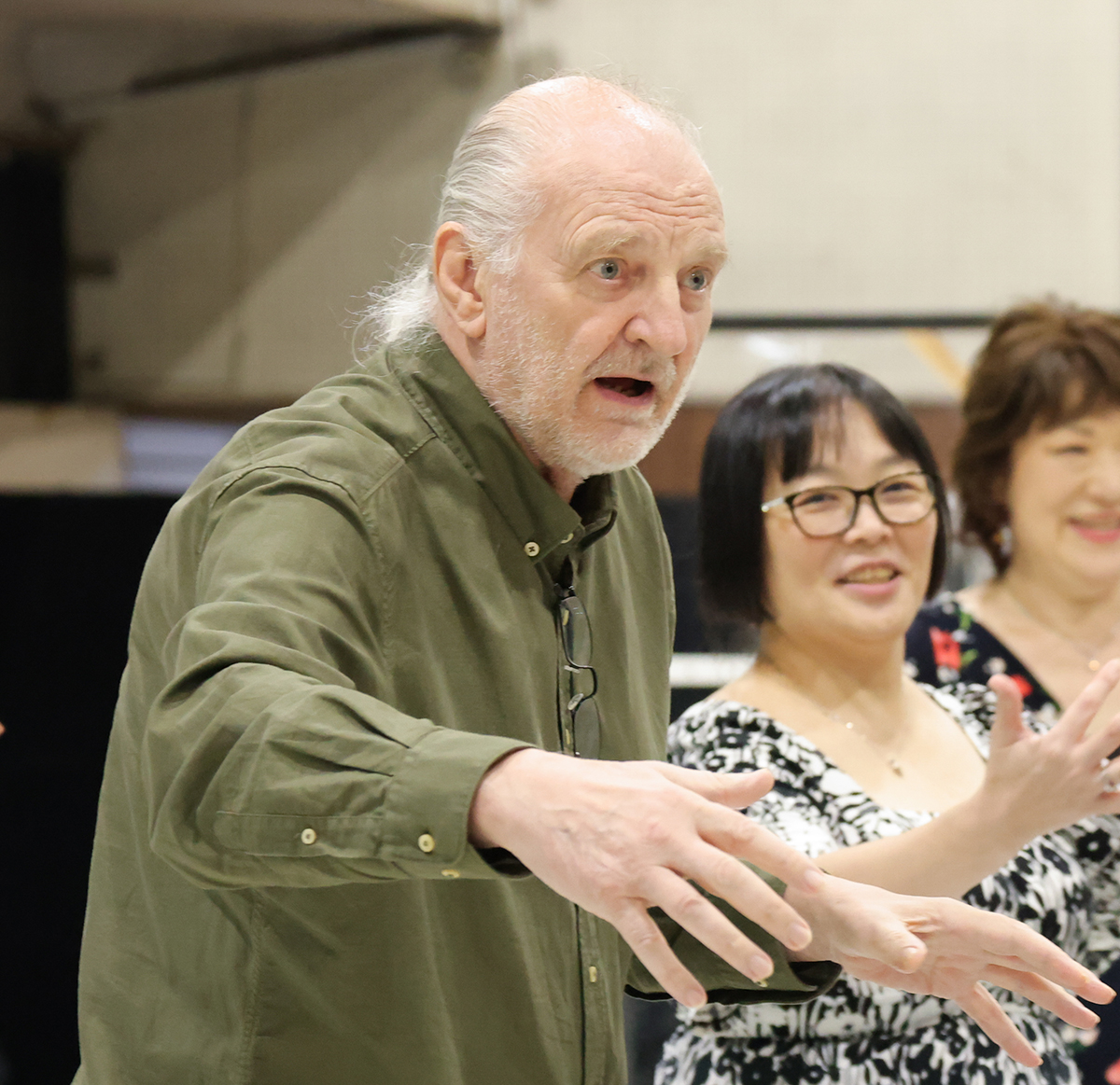
Breakthrough and drama with Strauss
The controversial yet acclaimed collaboration on Richard Strauss’ “Die Frau ohne Schatten” was a highlight of Tokyo Opera Days 2024. This bold reinterpretation generated significant discussion within the opera community.
This work presented multiple challenges. The libretto by Hugo von Hofmannsthal was widely considered difficult to understand due to its mystical themes and convoluted story. Furthermore, the story is based on gender perspectives that are no longer accepted in modern society, including the premise of the husband of a childless woman turning to stone.
“The work has been appreciated primarily because of its extraordinarily beautiful music,” Yamaguchi said. “Together with Konwitschny, we used bold approaches to make it more accessible to contemporary audiences.”
This reinterpretation placed the mythological world of the original in a modern setting. It boldly cut some of the most beloved passages of music, rearranged certain sequences, altered the ending and added Japanese dialogue, all while challenging the gender stereotypes of the original.
This innovative reimagining drew mixed reactions. The harsher criticism included a comment such as “This isn’t ‘Die Frau ohne Schatten,’” but Yamaguchi views this polarization positively.
“Opera fans were divided in their opinions, but we received many favorable reviews from people who don’t usually attend opera, saying they enjoyed it as a “musical drama.” We were particularly gratified by the numerous comments praising the musical performance as ‘wonderful.’ When working with top-tier directors and conductors, singers can perform with greater conviction, resulting in richer musical expression. As a music organization, being recognized for the quality of our music is extremely important to us,” he said.
Following this 2024 reinterpretation in Tokyo, the opera is scheduled to be performed at Theater Bonn, as well as Theater Real in Madrid. The future evolution of this production looks promising, with new performers and creative exchanges anticipated at each location.
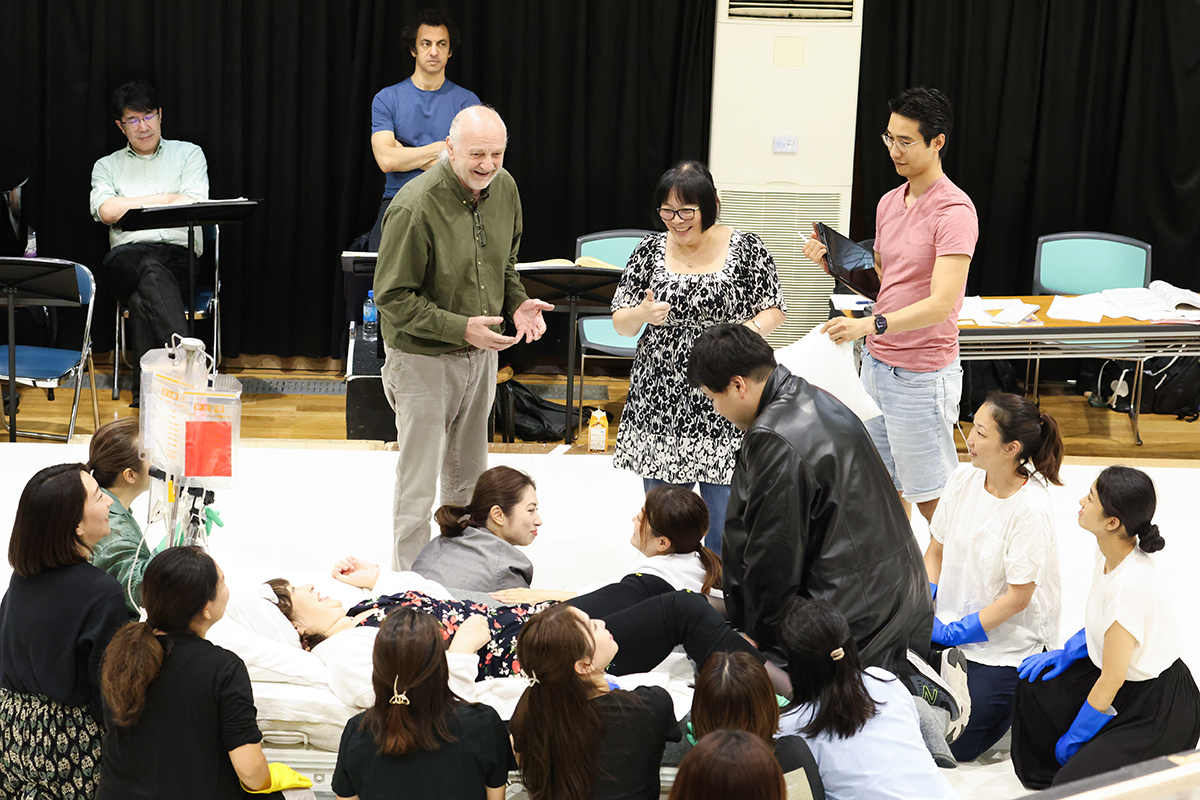
Making use of Japan’s strengths
According to Yamaguchi, the decision to base this production in Japan was a major reason why “Die Frau ohne Schatten” could be remade in such a groundbreaking way. Konwitschny had planned to direct this work twice before but abandoned his efforts on both occasions because he was unable to achieve a satisfactory form. It was in Japan that he finally reached his ideal vision.
“Japanese performers show other artists tremendous respect and maintain an open ‘let’s try it first’ attitude when working together, whereas Europeans often engage in power games over ‘who wins or loses.’ True partnerships can flourish in Japan. This environment makes it easier to realize productions where the director’s intentions are directly expressed,” Yamaguchi said.
“Japanese stage technicians pay close attention to details and make thorough preparations. Above all, they work harmoniously as a team, with each individual taking responsibility and striving professionally toward common goals. This is why we are able to realize what creators envision,” Yamaguchi explained. It’s also another reason why European directors and conductors are said to be eager to work in Japan.
Japan’s strengths lie not only in its performers’ capabilities, but also in its stage technicians’ expertise and production acumen. The technicians have exceptional skills for delivering 100% completion on schedule for both classical productions and cutting-edge collaborations. A notable example was Tokyo Nikikai’s collaboration with teamLab, a digital art collective, on Giacomo Puccini’s “Turandot,” which demonstrated how Japan’s performers and technicians united as one team to achieve what would be very challenging elsewhere.
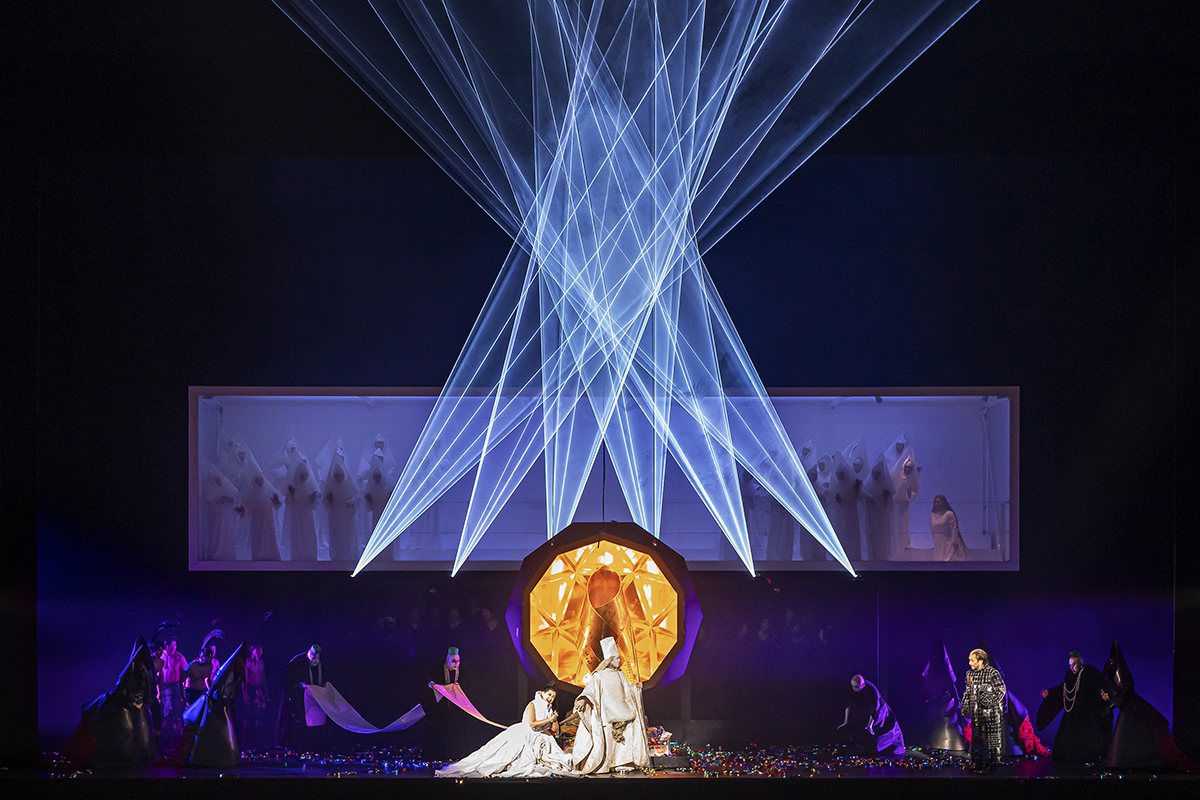
Visionary original opera
In September, kicking off the third year of Tokyo Opera Days, Richard Wagner’s “Der fliegende Hollaender” (“The Flying Dutchman”) will be performed as a Japanese original production conducted by Toshiyuki Kamioka, who has served as music director at several opera houses in Germany. The director is Kenta Fukasaku, who is active as both a film and stage director. These two talents have teamed up to create an opera with an outstanding artistic vision.
“Fukasaku aims to create ‘something that even people unfamiliar with opera can enjoy, and that audiences can sit through for two or three hours without getting bored,’” Yamaguchi said. “Having a film director handle stage direction is significant. Opera creates a vast world, and a film director’s sense of scale is extremely important. They are particularly well-suited for constructing bold stage sets, lighting and grand worldviews.”
Promoting international careers
The Opera Hub Initiative, through Tokyo Opera Days, also creates opportunities for Japanese singers to perform abroad. The results are already evident.
For example, the soprano Ena Miyachi, who performed in “Die Frau ohne Schatten,” was subsequently invited to perform in Taiwan to play Gilda in Giuseppe Verdi’s “Rigoletto” in October, demonstrating how performances in Tokyo can serve as stepping stones for international career development.
As a long-term vision, Yamaguchi said: “We want to create an environment where artists can move freely across borders. We aim to promote exchanges where Japanese singers perform in Asia and Europe and foreign singers perform in Japan. Opera is sung in the same language regardless of where it’s performed, making it compatible with globalization.”
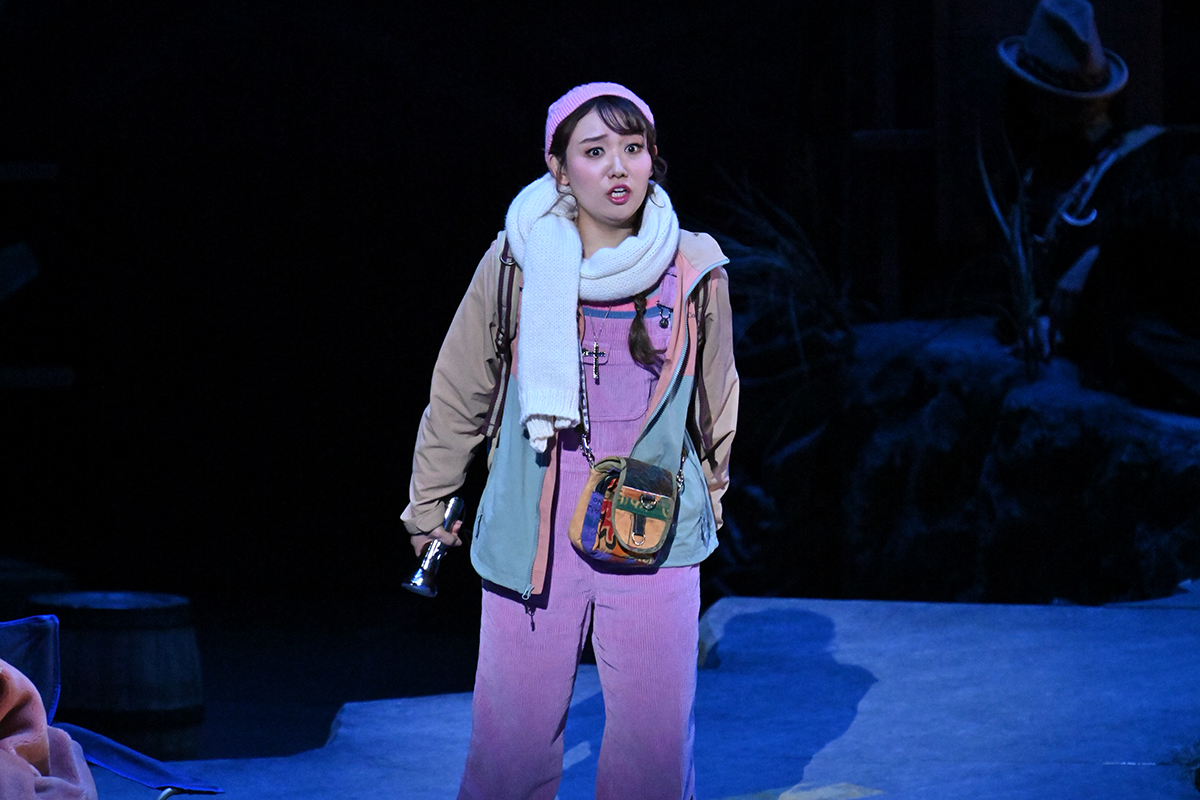
Future prospects, challenges
Currently, the Tokyo Nikikai Opera is facing a significant challenge from the scheduled closure of its main performance venue, the Tokyo Bunka Kaikan, which will undergo a three-year renovation from 2026. However, Yamaguchi has devised a strategy for turning this difficulty into an opportunity.
“There are lots of wonderful theaters throughout Japan outside Tokyo,” he noted. “We plan to produce operas at excellent theaters in Sapporo, Yamagata, Nagoya, Sakai, Oita and elsewhere, and accumulate expertise in regional production. When Tokyo Bunka Kaikan reopens in 2029, we want to stage a culminating production there.”
Regional production presents new challenges as well. “The proportion of first-time opera attendees is higher in regional areas than in Tokyo. By addressing the challenge of how to attract these newcomers to theaters, we hope to broaden the base of opera appreciation,” Yamaguchi said.
One long-term goal is to attract opera novices to theaters and expand the audience base, but it is equally important to create opportunities for Japanese opera companies to be invited to perform in Europe.
“Our mission is to showcase Japan’s ‘ideal form of creation’ to the world. Tokyo is a city where directors’ and conductors’ intentions are perfectly realized in a way that differs from Europe,” Yamaguchi said.
Discover Tokyo’s performing arts scene, where world-class technology meets artistic excellence, and experience extraordinary classical music performances that can only be found in Japan’s vibrant capital.



